

26 July 2019
Mr Timothy Nothdurft
Sent via email
: xxx@xxxxx.xxx.xx
Our Ref: 1819/116.08
Dear Mr Nothdurft
FOI Application – Processing fee determination
I am writing in relation to your request made under the
Freedom of Information Act 1982 (
the FOI Act)
in which you sought the following document – NBN-NTO-EDS-359 Network Design Rules MTM
Distribution Fibre Network (
the Relevant Document).
An FOI decision may be reviewed, subject to sections 53A and 54 of the FOI Act. The Office of the Australian
Information Commissioner’s FOI Fact Sheet 12 – Your review rights may be found at the following
link. If you have any questions or need to discuss your FOI application, please contact the writer via email on
xxxxxxxxxxx@xxxxx.xxx.xx. Yours sincerely
David Mesman
General Counsel
FOI Privacy & Knowledge Management

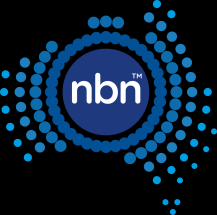 FOI APPLICATION – FOI CHARGES DECISION
FOI1819/116
FOI APPLICATION – FOI CHARGES DECISION
FOI1819/116
Background Information
1. In making this decision, I took into account relevant parts of the
Freedom of Information Act 1982 (
FOI
Act or
Act) and related legislation, the Office of the Australian Information Commissioner (
OAIC) FOI
Guidelines, relevant case law and other sources.
2.
nbn is treated differently from other agencies and Commonwealth agencies that are subject to the FOI
Act. P
er section 7(3A) and
Part II of Schedule 2 of the Act, documents relating to
nbn’s commercial
activities are carved-out from the application of the Act. A summary of OAIC and Administrative Appeals
Tribunals decisions concerning
nbn’s commercial activities carve-out (
CAC) may be found at the following
link –
CAC Background Information.
Application, Chronology and Terms of Request 3. On 18 June 2019,
nbn’s FOI Team received an email from Mr Timothy Nothdurft (
the Applicant) via its
xxxxxxxxxx@xxxxx.xxx.xx account in the terms below.
“I am requesting information on behalf of the Australian public to understand key architecture
decisions around key components of the NBN Network - specifically MTM (multi technology mix)
and if these have been cost effective (SoE clause) and considered decisions following best
practices that give the best value for the money loaned to the organisation. I would like to
request the following named NBN Document to be released to the Australian public.
NBN-NTO-EDS-359 Network Design Rules MTM Distribution Fibre Network.”
4. On 1 July 2019,
nbn’s FOI Team acknowledged the Applicant’s current request and provided the
Applicant with an advance deposit request of $38.75. This was based upon a processing fee estimate
of $155, reflecting 12 hours of decision-making time and one hour for search and retrieval.
5. Also on 1 July 2019, the Applicant emailed
nbn, indicating the following:
“I'm questioning the consistency of the charges based on previous costings to retrieve 8 named
documents (find attached)…How does a single named document require 1 full hours (sic), but 8
similarly named documents requires only an additional 15 minutes?...Also the decision making
time is disproportionate. 20 hours for a single document is not in line with other Government
department FOI costings…There is enough public interest to release this data to validate technical
choice design decisions and if the CiC costs are proportional to the design…Therefore despite the
disproportionate costings I'm requesting this document be made public under FOI act.”
6. On 2 July 2019,
nbn’s FOI Team reverted to the Applicant and invited him to make fee reduction
submissions, as well as referring him to paragraphs 4.75-4.89 of th
e FOI Guidelines. In addition,
nbn’s
FOI Team indicated that:

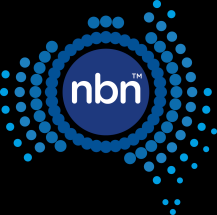 “…decision making will constitute the majority of processing time with your request. Please note that
“…decision making will constitute the majority of processing time with your request. Please note that
in estimating the time involved, I considered your specific request for one document, rather than
looking at your previous request for eight documents and simply dividing it by eight. In this regard,
my preliminary view is that the Advance Deposit Request and fees outlined to you represent an
accurate estimate of the processing time for your request. I also note that the decision making time
estimate is for twelve, not twenty, hours.”
7. On 2 July 2019, the Applicant provided
nbn’s FOI Team with the following contentions:
“I would like to make a request for the information to be released on the grounds of public
interest based on... The document relates to a matter of public debate, or a policy issue under
discussion within an agency, and disclosure of the document would assist public comment on or
participation in the debate or discussion. [30]
The National Broadband Network is a significant infrastructure project and every Australian
holds a stake. Release of technical documentation raises awareness, gives transparency, and
hold the contractor entities accountable for costings and performance. The document relates to
an agency decision that has been a topic of public interest or discussion, and disclosure of the
document would better inform the public as to why or how the decision was made, including
highlighting any problems or flaws that occurred in the decision-making process. [31]
NBN has recently announced FttC to FttP and HFC to FttP uplifts. There is evidence that
contractors are not adhering to the design documentation and this makes the release of this
information critical to protect the integrity of the project.
The document would add to the public record on an important and recurring aspect of agency
decision making. [32]
Fundamental architecture is unique to the NBN offers no commerical (sic) in confidence
advantage and provides important framework for all decisions now and in the future and should
be made public for analysis and debate.
This document is also referenced in key public high level architecture documents.”
8. On 23 July 2019, the Applicant emailed
nbn’s FOI Team and, among other matters, he suggested
that
nbn’s FOI Team had not responded to his FOI application within the required time frame.
9. Also on 23 July 2019, I reverted to the Applicant, indicating that:
“…nbn’s FOI Team is currently considering your request and is required to respond within 30 days
with an FOI fee decision. We will endeavour to have a response before that deadline, which is 31
July 2019. Once that determination is made – and if fees are waived, the processing time limits
will re-commence, i.e. from the 11 days already passed. If FOI processing fees are not waived or
reduced, nbn will issue with a new advance deposit or resend the original advance deposit. You
will be provided with your relevant review and appeal rights at the time in relation to nbn’s fee
decision. Please note that the processing fee decision is a separate matter from completing an
FOI access decision.” (Emphasis added)

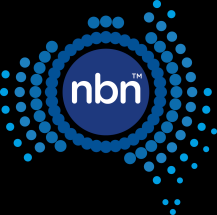
10. Also on 23 July 2019, the Applicant emailed
nbn’s FOI Team and indicated that he had not agreed to
an extension and reiterated claims that
nbn had not responded to his FOI application within the
required legislative time frames. The Applicant also indicated that
nbn’s FOI Team had not acted
professionally, among other claims.
11. Also on 23 July 2019, I reverted to the Applicant and referred him to paragraphs 4.13 and 4.14 of the
FOI Guidelines. Those paragraphs make it clear that an FOI Charges Decision must be completed
within 30 days (or earlier if practicable) after receiving an applicant’s reasons for contesting the
charge. I also indicated that the Charges Decision would be completed within the relevant time
period. As outlined above, the Decision was required by 31 July 2019.
12. On 26 July 2019, I completed this FOI Charges Decision.
nbn’s approach to FOI processing charges 13. As outlined at section 3(4) of the FOI Act (Objects of the FOI Act), FOI agencies are expected to
exercise their functions and powers, as far as possible, to facilitate and promote public access to
information, promptly, and at the lowest reasonable cost.
14. Per paragraph 4.4 of th
e FOI Guidelines, agencies should have regard to the “lowest reasonable cost
to the applicant, to the agency or minister, and the Commonwealth as a whole”, when exercising
their discretion to impose processing charges. In that context,
nbn has adopted an FOI processing
fee policy, which seeks to balance the lowest reasonable cost to applicants,
nbn and the
Commonwealth, while taking into consideration
nbn’s status as a GBE.
15. Unlike Commonwealth Government agencies and departments,
nbn is expected to operate as a
business entity. Per paragraph 1.8 of th
e GBE Governance and Oversight Guidelines (
the GBE
Guidelines) a GBE’s principal objective is to add to shareholder value. To achieve this objective, GBEs
are required to operate and price efficiently; at minimum cost for a given scale and quality of
outputs; and earn, at least, a commercial rate of return.
16. Based on the above points, it is clear that
nbn has an obligation to operate according to sound
commercial and business practices. In that regard, good business practice dictates that
nbn should
put a value on the time spent by its staff and charge accordingly for its services. This reasoning
applies equally to FOI applications, which require input from dedicated FOI staff, but also the
expertise and efforts of other
nbn staff members. As FOI processing takes
nbn staff time away from
core commercial activities, it will have an impact on the company’s bottom line and its ability to
meet corporate objectives. In that context,
nbn is obliged to account for and place a value on staff
members’ FOI processing efforts. To do otherwise would tend to undermine
nbn’s obligations to
operate as a commercial entity and per the GBE Guidelines.
17. FOI processing fees are set by regulation and, in particular, the
Freedom of Information (Fees and
Charges) Regulations (
the Charges Regulation). The two most common processing activities are
decision-making ($20/hour) and search-and-retrieval ($15/hour), which are roughly equivalent to
current Australian minimum wages. According to th
e Fair Work Ombudsman’s website, the national
minimum wage is currently $19.49 per hour. In that context, it would not be unreasonable to

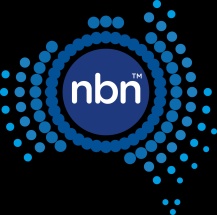
assume that commercial entities would charge significantly higher rates for performing similar tasks.
It also follows that Government agencies and GBEs would have much higher processing costs than
those outlined in the Charges Regulation. In fact, Commonwealth Government agencies and GBEs do
incur significantly more costs than those captured by the Charges Regulation. This was made clear in
the OAIC’s
Review of Charges under the FOI Act (
the Charges Report). In the Charges Report, the
OAIC indicated that FOI charges only represented 2% of the actual costs incurred by agencies and
similar bodies since the Act’s commencement in 1982.
18. In light of the above points, it seems clear that FOI processing fees are set at a discount to the actual
costs incurred by agencies and GBEs, like
nbn. In my opinion, Parliament has, in all likelihood,
chosen these below-market rates, to reflect the public importance of FOI processes and particularly
for its role in helping to inform public debate. However, there are a number of key public interests
served by Government agencies and authorities having the ability to charge for FOI processing time.
In
its Submission to OAIC for the Charges Report,
nbn outlined its support of fees and charges and
their importance to the FOI scheme and that:
Government entities should be able to recoup some of their costs associated with processing FOI
requests, while providing a key public service. This is in line with user-pays principles.
The ability to charge for FOI processing time reflects Parliament’s and the community’s
recognition that public servants’ time is a valuable resource. Moreover, such resources should
only be spent in appropriate public undertakings. This argument could be applied with even
greater force to GBEs, which are expected to operate as any other commercial player in the
marketplace. Similar reasoning animates section 24AA of the FOI Act, which enables decision-
makers to refuse requests that would substantially and unreasonably divert the resources of the
agency from its operations.
The ability to charge for the processing of FOI applications also ensures that applicants have a
serious interest in the subject matter and are likely to proceed with the application to a final
determination. In addition, the requirement of a deposit tends to limit the scope of preliminary
work “written off” by Government entities in the event that an applicant withdraws a request.
This dovetails with the public interest in not wasting taxpayer-funded, public resources.
At page 5 of the OAIC Charges Review Report, the OAIC reinforced the importance of fees and
charges, outlining that:
“Fees and charges play an important role in the FOI scheme. It is appropriate that
applicants can be required in some instances to contribute to the substantial cost to
government of meeting individual document requests. Charges also play a role in
balancing demand, by focusing attention on the scope of requests and regulating those
that are complex or voluminous and burdensome to process.”
19. In light of the above points, it is
nbn’s general policy to charge applicants for its FOI processing time.
However,
nbn’s charging policy also requires the company to examine every application on its
individual merits. As such, there may be grounds to exempt or reduce processing fees for a given FOI
request. Those grounds are explored below.

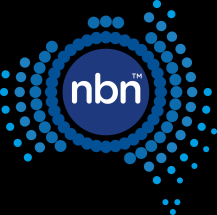
Calculation of processing time 20. Per section 29(4) of the FOI Act, I considered your contentions that the FOI processing fees were
incorrectly assessed. I also reviewed my colleague’s preliminary assessment of the charges, detailed
in an email of 2 July 2019. For reference, the details and the breakdown of fees are typical of FOI
processing fee notices.
21. I find that the majority of the processing time would involve decision-making. Among other matters,
FOI decision-making involves a preliminary review and assessment of the Relevant Document to
determine whether it relates to
nbn’s commercial activities. In addition,
nbn’s FOI decision-makers
must undertake discussions with relevant
nbn staff regarding any commercial or other sensitivities
relating to the potential disclosure of the Relevant Document; review relevant case law and the
OAIC Guidelines; confirm findings of fact with
nbn staff; and draft or write a comprehensive decision
that considers all the relevant steps and issues. In my experience, an estimate of 12 hours to
complete an FOI decision is an appropriate assessment of decision-making time for the current
matter, if not a slight under-estimate compared to similar decisions and their relative complexity.
22. While my colleague’s original estimate for the search & retrieval time reflected the actual time spent
in locating the Relevant Document, I determined that search and retrieval time should be reduced to
15 minutes. In that regard, I have recalculated the fees owing, as outlined at
Attachment A.
Public interest considerations 23. The FOI Act allows applicants to request a reduction or waiver of FOI processing fees in
circumstances where it can be shown that the release of the requested documents would be in the
general public interest or the applicant is experiencing financial hardship. The Applicant has not
provided any evidence of financial hardship. As such, I have only considered the public interest
grounds for a fee reduction.
24. Section 29(5)(b) of the FOI Act outlines the test for granting a fee reduction on the basis of public
interest. In particular, FOI decision-makers must consider “
whether the giving of access to the
document in question is in the general public interest or in the interest of a substantial section of the
public.”
25. Paragraph 4.83 of the OAIC Guidelines make it clear that the ‘public interest’ cannot be exhaustively
defined. Applicants relying on section 29(5)(b) of the FOI Act are expected to identify the ‘general
public interest’ or the ‘substantial section of the public’ that would benefit from this disclosure.
Among other issues, the OAIC Guidelines provides examples where providing access may be in the
public interest, including matters of public debate or a policy issue under discussion – and the
currency of the topic of public interest.
26. In that context,
nbn’s FOI Team generally recommends that FOI applicants support any public
interest contentions with evidence of media, Parliamentary or related coverage concerning the
subject matter of the requested documents. In that regard, the Applicant’s public interest
contentions did not refer to media, Parliamentary or related consideration of these issues.

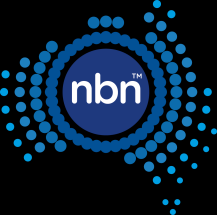
27. Following receipt of the Applicant’s contentions on 2 July 2019, I undertook general internet
searches and found no media or related reference to the Relevant Document. I did find media
references to
nbn’s gener
al Network Design Rules, which
nbn publishes and updates. However,
those very limited media references date from 2015. This suggests that there may be some public
interest in
nbn design documentation broadly, but it is not current, nor does it relate to the specific
subject matter of the Relevant Document.
28. I also note that
nbn has drafted a number of technology-specific design documents, which are
similar in nature to the Relevant Document. However, I was unable to find any media or
Parliamentary reference to these technology-specific design documents, suggesting that there is not
a general public interest in these more technology-specific
nbn design documents. Hence, it is not
clear that there is general public interest in the Relevant Document or documents like it.
29. In relation to the Applicant’s other contentions, it was not clear how disclosure of the Relevant
Document would add to an understanding of
nbn’s decision-making processes; or increase
accountability regarding actions taken by
nbn’s delivery partners; or assist in the assessment of how
nbn obtains value-for-money.
30. On balance, I am not persuaded that there is a general public interest in the Relevant Document. As
such, I consider that a fee waiver would not be appropriate.
31. It should be noted that I have not yet made an access decision in relation to the Relevant Document.
As outlined to the Applicant, completing a Fee Decision is a discrete process from an FOI access
determination. Subject to any review rights and/or if the Applicant agrees to pay the processing
charges,
nbn’s FOI decision-maker would need to complete an FOI access decision. In that scenario,
it is a possibility that the decision-maker may conclude that the Relevant Document is exempt from
the operation of the FOI Act per
nbn’s CAC, as well as other general and conditional exemptions. In
other words, the payment of FOI processing fees does not equate to disclosure. Rather, processing
fees are levied to account for the time and effort required to complete an FOI determination.
32. The Applicant should be aware that 11 days (of 30) had passed at the point at which this application
was suspended for the purpose of requesting an advance deposit.
33. If you are dissatisfied with this decision, you have certain rights of review. Those rights of review and
appeal are outlined in the covering letter, provided with this Statement of Reasons.

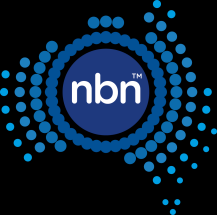 Attachment A – Revised Advanced Deposit Request
Attachment A – Revised Advanced Deposit Request
Per section 29(1) of the FOI Act, I have determined that a charge is payable in respect of the processing of
this FOI request.
nbn staff have undertaken a search for the requested documents, and the search and
retrieval time is detailed below. In addition,
nbn’s FOI Team completed an assessment of the work involved
in processing your FOI request and the applicable charges as follows:
Search and Retrieval Time
0.25 hours @ $15.00 per hour
$3.75
Decision Making Time
12 hours @ $20.00 per hour
$240
Sub-total
$243.75
Less first 5 hours decision making time(*)
($100.00)
TOTAL
$143.75
(*) In accordance with the
Freedom of Information (Fees and Charges) Regulations,
nbn has not charged you for the first 5 hours of decision-making time.
Please note that the estimated processing time and relevant fees may increase (or decrease), depending on
the nature of the work required. However, I will inform you if the fees increase beyond the estimate outlined
above. As the total estimated processing charges exceed $100, a deposit of 25% ($35.94) is required.
Next steps
Within 30 days of this notice, you are required to:
agree to pay the charge and forward the deposit; or
contend that the charge has been wrongly assessed, or should be reduced or not imposed (you should
provide full reasons for your contention); or
narrow the scope of your request (which may reduce the charge payable); or
withdraw your request.
If you fail to notify
nbn within 30 days of this notice, and in a manner mentioned above, your request will be
taken to have been withdrawn.
If you choose to contend that the charge has been wrongly assessed or should
be reduced or not imposed, you will need to make a request for an Internal or External Review. Your review
rights under sections 53A and 54 of the FOI Act following consideration of your contentions.
Once
nbn has completed the processing of your request, the assessment of the charge payable will be revised
based on the actual amount of work involved in processing your request. If you are refused access to any of
the documents that are relevant to your request,
nbn may not impose an actual charge that is higher than the
final estimated charge. This means that, if you are refused access to any document, the actual charge that will
be payable will be lower than or equal to, but not more than, the final estimate of charges. It is only if you are
granted access to all the documents that are relevant to your request that the actual charge imposed may be
higher than the estimated charge.
It is important to note that the payment of FOI processing fees does not
guarantee access to documents or information. To pay the estimated deposit, set out above, please use the following electronic banking details:
Bank name:
CBA
Name:
nbn co limited FOI
BSB:
062-438
Account no: 10240782
Reference:
FOI-AYCA-65O47H
When making a payment, please ensure you include the reference, highlighted, above.

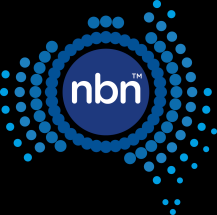
Please note that if you provide a deposit and the processing of your request progresses to a point where a
decision on access is made, a determination about the imposition of the actual charge will be made at that
time. The balance of the actual charge will become a debt due to the Commonwealth, which
nbn would be
obliged to pursue, unless other arrangements are made – or if
nbn agrees to waive the fees.
Per section 31 of the FOI Act, the time limit for processing your request is suspended from the day you receive
this notice, being today’s date. Please also be advised that the charge notice day is not counted in calculating
the processing time limit. For your reference, 11 days
have passed
and the processing time limit will resume:
on the day upon which
nbn receives your deposit;
alternatively, if you decide to contest the charge, the processing time limit will resume on the day upon
which
nbn notifies you of its decision not to impose a charge – if
nbn so makes a decision; or
in the event that
nbn decides to reduce the charge and deposit is required, the processing time limit
will recommence on the day upon which you pay the reduced deposit.
More information about charges under the FOI Act is available in
Fact Sheet 7 on the Office of the Australian
Information Commissioner’s (
OAIC) website and in part 4 of the OAI
C FOI Guidelines.


















